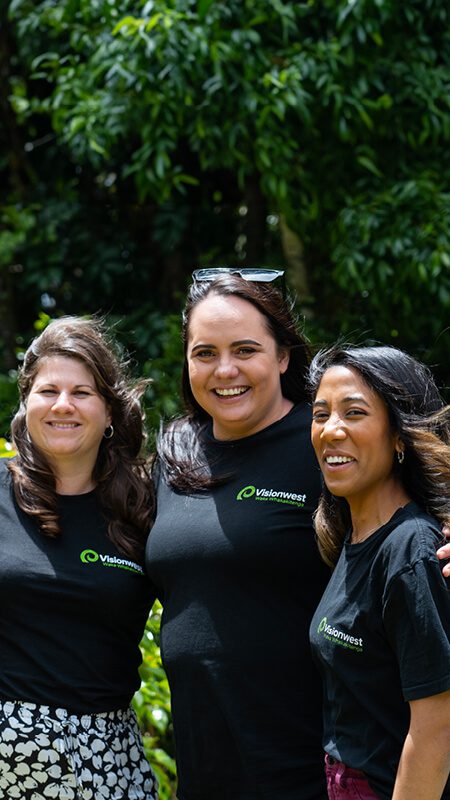Whānau Centre
This year the Whānau Centre took on additional responsibilities as Visionwest’s key entry point, not only for those whānau seeking support, but for all organisational enquiries (excluding Home Healthcare).
As part of this change, coordination capacity was increased so that everyone, whether by phoning in, emailing, or coming onsite, can experience the beautiful wairua-based welcome of the Visionwest waharoa (gateway) and be directed to appropriate services.
The understanding and embedding of atawhaitanga (compassion and care) as a significant part of the Centre’s service development has seen positive change with atawhaitanga becoming a central concept and expression of engaging with people. This is demonstrated through the way our Community Connectors, Support Navigators and Coordinators work with and relate to whānau.
The Whānau Centre teams contributed significantly to the delivery of support during the Tāmaki Makaurau Auckland weather events and in the months following (see the Flood Response chapter of this report). These flooding events, along with the ongoing effects of Covid, and the cost of living and housing crises, have heightened and highlighted the significant need that exists in our communities.
Community Connectors
Our six Community Connectors were pivotal in Visionwest’s response to both Covid and Auckland’s flood events; so much so that, without their ability to support and direct whānau, Visionwest’s emergency response would have been severely hampered. Such was the demand following the flood events that an additional two Community Connectors were added in February to enable the establishment of a dedicated flood/cyclone response team.
Within the Whānau Centre, a Kaiatawhai Whānau role was established. This is effectively a full-time Community Connector based at our Whānau Centre and it has enabled an increase in the low-intensity Social Work supports provided to whānau.
Community Connectors have become integral to the wraparound support services provided by Visionwest. These kaimahi (staff) have the knowledge and expertise to navigate client whānau through the government agencies and community organisations that are appropriate to their needs. They then remain key workers in their lives until those whānau are connected to and receiving the support or long-term services they require.
Adding staff to the Whānau Centre team has enabled growth in our low-intensity Social Work and provided additional avenues of effective support to whānau.
During Visionwest’s flood response, the Whānau Centre’s 0800 line became the main source of information and expertise for both whānau and partner organisations alike.
“My Community Connector was so welcoming … She didn’t treat me like just another person, she gave hope and made me feel like I wasn’t forgotten.” Tereanna – Visionwest whānau.
A Kaiatawhai Whānau role – effectively a full-time Community Connector – has been established and is now part of the Whānau Centre team.
Our culturally informed response
Tā mātou whakautu ki te āhuatanga ahurea
Whānau supported and connected to services by the Community Connector team
Sessions provided by the Whānau Centre
Trushar’s Story
In 2021, just eight months after moving his family into their West Auckland property, Trushar’s house was flooded and they lost many household items. Trushar admits it was an inconvenience but nothing like the trauma the family experienced on 27 January 2023.

